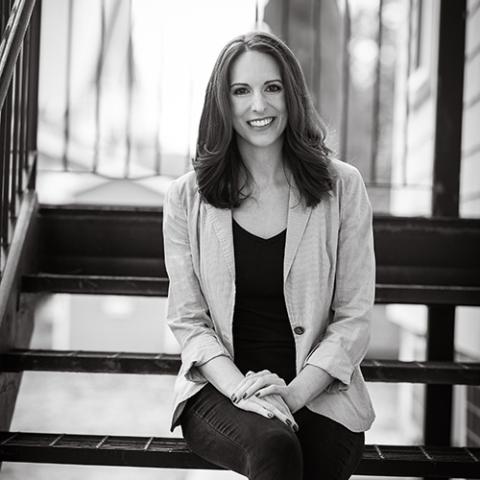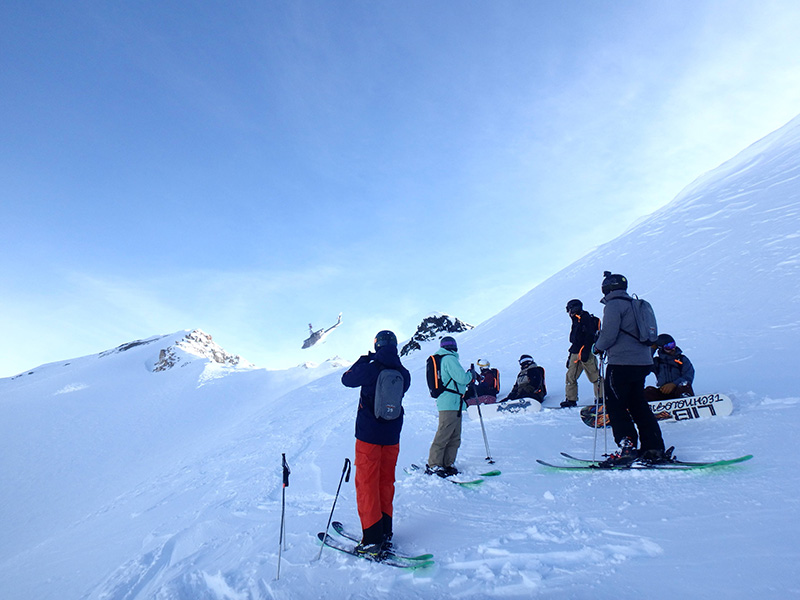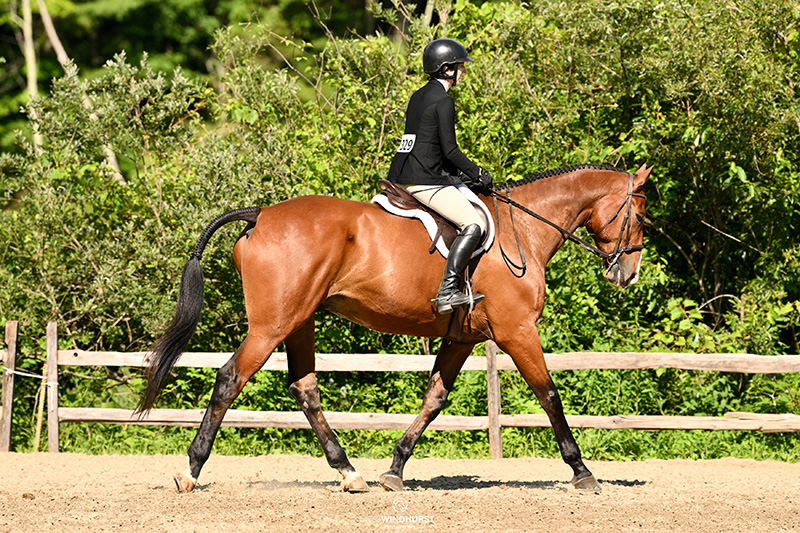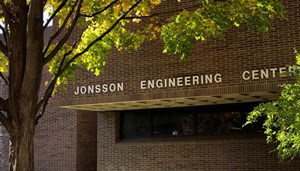
On Engineering Trustworthy Robots, Optimizing Complex Systems, and Embracing Life’s Big Adventures
Tell us briefly about yourself: where you grew up, how you chose RPI, and what led you to pursue an engineering degree.
I grew up in Seekonk, MA, a town just outside of Providence, RI. When I was a junior in high school, my guidance counselor told me about an event at RPI called 'Design Your Future Day.' I didn’t know much about the school, but I knew I wanted to pursue either math or engineering, so it seemed like a great way to explore different majors. That event solidified my decision; RPI shot to the top of my list, and I knew I wanted to be an engineer. I was driven by the idea of making things better and more efficient from a design perspective. It was also at 'Design Your Future Day' that I first learned what Industrial Engineering was and realized it was exactly what I wanted to do.
What was your RPI experience like? Do you have a special memory or event from your RPI days that you wish to share?
I have so many great memories! I feel lucky that my experience was such a rich mix of making lifelong friends, securing amazing internships, studying abroad in Denmark, and being a very active member of the Equestrian team. Many people, both fellow students and faculty, helped me get where I am today, even if I didn’t realize the full impact they were making at the time. The connections from RPI have been incredible.
It’s hard to pick just one special memory, but two things that truly made my experience were the Equestrian team and my semester abroad. I have vivid memories of cleaning boots before sunrise with the team, traveling to away-shows, and bonding over horses and handwarmers. It was a fantastic way to connect over something besides our engineering classes, and I can’t imagine my college experience without it.
Did RPI prepare you for success? What do you think distinguishes RPI education and student experience?
The more experience I gain in my professional life, the more I truly see how RPI prepared me for success. It started with practical support from the Career Center in prepping for internship interviews and writing my resume. From an academic standpoint, the level of education was easy to distinguish; I always felt I could reference technical concepts quickly. More importantly, if I didn't know an answer, RPI taught me how to find it; how to solve a problem with limited information, which mirrors most real-world engineering challenges. On-campus experiences, from workshops to clubs and teams, were crucial for learning time management and prioritization. It’s funny, moments still arise in my professional life where I think to myself, 'Ah, this is why RPI taught us that.' It happens more often than you’d think!"
You are the Chief of Staff – Technology at Boston Dynamics. What does this work entail? What do you enjoy most about your work? What are some exciting projects you are currently working on?
Honestly, “Chief of Staff” can sound a bit formal. My main job is really to make sure all the amazing, chaotic energy at Boston Dynamics is pointed in the same direction. I run a team of over 15 folks, and spend a lot of time translating the super-technical stuff happening in our labs into something the whole business can rally around. I support our CEO, Rob Playter, and focus on acting as a bridge between our internal innovation and the incredible tech being developed outside our walls. For instance, I help champion our internal precision lab, which is our high-tech workshop where the very first physical parts of a new robot idea get made. It's where a wild concept in a CAD file becomes something you can actually hold. Fostering that space and making sure those teams have what they need is critical.
But we know we can't invent everything ourselves. That's where key partnerships come in, and my team is central to making them work. Some projects I lead now include our work with NVIDIA, where I am the strategic liaison, working with our teams and theirs to ensure that relationship is tight—that their tech roadmap helps us solve our challenges, and our needs help inform their development. It's about keeping that crucial feedback loop humming. We also work with organizations like the RAI Institute (Robotics & AI Institute). That's less about specific hardware and more about responsible innovation. My team and I engage there to ensure that as we're building these incredibly capable machines, we're also helping to lead the global conversation about how they are used safely and ethically. It’s about building public trust as much as it is about building robots.
Honestly, that’s what I love about the job. One day I’m looking at a freshly machined part for a robot that doesn't exist yet, and the next I’m on a call discussing the future of AI policy. It’s exciting!
You began your career in the oil industry. What led to your transition into robotics?

I realized early in my oil industry career that while travel was interesting, my passion was truly rooted in industrial engineering. When I was relocating back to the United States, I was that person in the airport wondering why layovers were so inefficient or why my packages were routing through random hubs. That curiosity about logistics is what led me to look for roles in that space. I loved the challenge of making things move faster, and my roles at FedEx Ground and Amazon let me thrive there. Eventually, I saw that robotics was the future of logistics, which prompted my shift from routing and optimization toward the robotic warehouse space. The key transition happened at Amazon, where I moved from leading a research science group focused on mathematical optimization to becoming a lead design engineer for the robotics division. It was the perfect application of my skills, where I had the opportunity to launch a new type of robotic sorting system in North America and Europe. Essentially, I followed my expertise from optimizing complex physical processes to engineering the robotic systems that automate and enhance them.
You have been an active alumna, hosting the RPI Robotics Club as well as faculty and staff at Boston Dynamics, speaking on campus, and contributing as a member of our Industrial and Systems Engineering Industry Advisory Council. What inspires you to give back to your alma mater in this way? Is there anything that pleasantly surprised you?
I give back because I want current students to have the same incredible experiences and opportunities that I did. I have made it a point to mentor young professionals, guide entrepreneurs, and give lectures, because these are the types of things that helped me navigate my own path. If I can make a positive difference in even one student's life, it’s all worthwhile. Plus, keeping up with alumni brings back great memories, and it’s an amazing network when you are joining a new job or moving to a new city. What has surprised me most is just how many alumni are out there making an impact. It really is a small world!
What is your advice to current RPI students, especially as it relates to making a career transition? How should they prepare for jobs that may not exist today?
My biggest piece of advice is to focus on your foundational skills rather than a specific job title or industry. My own career path looks varied on the surface—from oil and gas with Schlumberger, to logistics with FedEx and Amazon, and now to advanced robotics at Boston Dynamics. However, there's a common thread: a focus on optimizing complex systems. Your transition might not be a single leap but a series of logical steps. I didn't go directly from designing cement solutions for oil wells to leading technology programs for humanoid robots. I spent years honing my expertise in industrial engineering, process design, and data analysis in the logistics world. Also remember that technical skills are crucial, but so is your ability to guide others and communicate your ideas. The problem-solving foundation you are building right now at RPI is the best preparation you can have for that future.
What do you do for fun?
 I am still very passionate about horseback riding and compete regularly in the greater New England area. To survive the winters, I have gotten more into skiing over the years, and recently (with a few other RPI alums!) I tried heli-skiing for the first time. I guess I enjoy a good adrenaline rush, whether it’s on a horse or in a helicopter. My travel list is a mile long, but for now, we’ll stick with riding competitively and skiing!
I am still very passionate about horseback riding and compete regularly in the greater New England area. To survive the winters, I have gotten more into skiing over the years, and recently (with a few other RPI alums!) I tried heli-skiing for the first time. I guess I enjoy a good adrenaline rush, whether it’s on a horse or in a helicopter. My travel list is a mile long, but for now, we’ll stick with riding competitively and skiing!
